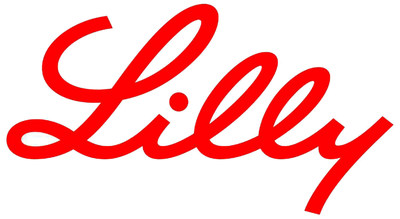Lilly's Mirikizumab Superior to Cosentyx® (secukinumab) in a Phase 3 Study for Patients with Moderate to Severe Plaque Psoriasis
|
OASIS-2 |
||
|
Week 16 |
Week 52 |
|
|
Placebo | Cosentyx (per label) | |
Cosentyx (per label) | Mirikizumab (250 |
|
|
sPGA(0,1)† |
6.3% | 76.3% | 79.7% |
68.5% | 83.1%; 83.3% |
|
PASI 90† |
6.3% | 72.8% | 74.4% |
69.4% | 81.4%; 82.4% |
|
PASI 100 |
1.8% | 36.6% | 37.7% |
42.9% | 53.9%; 58.8% |
|
p< 0.001 for all comparisons including non-inferiority with Cosentyx at Week 16; mirikizumab comparison with Cosentyx at Week 16 for PASI 100 not adjusted for multiplicity. |
|
† Primary endpoints versus placebo at Week 16. |
The safety profile was consistent with previously disclosed results for mirikizumab and known safety findings of other drugs in the IL23p19 class.
"The results from this study are promising to people around the world who are burdened by psoriasis and
The OASIS program demonstrates
"We are pleased with the positive results observed in the mirikizumab psoriasis development program (OASIS). Mirikizumab has the potential to be a meaningful treatment option for people living with psoriasis," said
In OASIS-2, the primary endpoints were the proportion of patients with a Static Physician's Global Assessment (sPGA) of (0,1) with at least a 2-point improvement and the proportion of patients with at least a 90 percent improvement from baseline in Psoriasis Area and Severity Index (PASI 90) at Week 16 compared to placebo. Similar endpoints were evaluated at Week 16 as key secondary endpoints compared to Cosentyx. Other key secondary endpoints compared to placebo at Week 16 include the proportion of patients with at least a 75 and 100 percent improvement from baseline in Psoriasis Area and Severity Index (PASI 75/PASI 100).
Key secondary endpoints at Week 52 compared to Cosentyx included the proportion of patients with a Static Physician's Global Assessment (sPGA) of (0,1) with at least a 2-point improvement and the proportion of patients with at least a 90 and 100 percent improvement from baseline in Psoriasis Area and Severity Index (PASI 90/PASI 100).
The most common treatment-emergent adverse events (≥5%) during the induction period (up to Week 16) were nasopharyngitis and upper respiratory infections and during the combined induction and maintenance treatment periods (up to Week 52) were nasopharyngitis, upper respiratory tract infections, headache, back pain, and arthralgia. The frequency of serious adverse events was comparable across treatment arms during the induction period (<2.5%) and combined induction and maintenance periods up to 52 weeks (<6%).
The full OASIS-2 study results will be disclosed at future congresses. Phase 3 clinical trials are ongoing for mirikizumab in inflammatory bowel diseases (IBD) including ulcerative colitis and Crohn's disease, an area where there are limited treatment options and patients are currently underserved. After pausing enrollment due to the COVID-19 pandemic, these studies have resumed enrolling patients.
About Mirikizumab
Mirikizumab is a humanized IgG4 monoclonal antibody that binds to the p19 subunit of interleukin 23. Mirikizumab is being studied for the treatment of immune diseases, including psoriasis, ulcerative colitis and Crohn's disease.
About the OASIS-2 Trial
OASIS-2 is a multicenter randomized, double-blind, placebo-controlled study comparing the efficacy and safety of mirikizumab to placebo and Cosentyx (secukinumab) in patients with moderate to severe plaque psoriasis. 1,465 patients were randomized in the study in a 4:4:4:1 ratio to one of the following induction and maintenance period treatments: a) 250 mg mirikizumab at Weeks 0, 4, 8, 12 followed by 250 mg every 8 weeks (Q8W) starting at Week 16; b) 250 mg mirikizumab at Weeks 0, 4, 8, 12 followed by 125 mg Q8W starting at Week 16; c) 300 mg secukinumab at Weeks 0, 1, 2, 3, 4, followed by 300 mg Q4W starting at Week 4; d) placebo at Weeks 0, 4, 8, 12, followed by 250 mg mirikizumab every 4 weeks (Q4W) starting at Week 16 through Week 32 followed by Q8W thereafter. Dosing was via subcutaneous injection for all treatments.
About Moderate to Severe Plaque Psoriasis
Psoriasis is a chronic disease that occurs when the immune system sends out faulty signals that speed up the growth cycle of skin cells, causing raised, red, scaly patches to appear on the skin.1 Psoriasis affects approximately 125 million people worldwide, approximately 20 percent of whom have moderate to severe plaque psoriasis.1,2 There are five types of psoriasis. The most common form of psoriasis, plaque psoriasis, appears as raised, red patches covered with a silvery white buildup of dead skin cells.1
About
About Eli
This press release contains forward-looking statements (as that term is defined in the Private Securities Litigation Reform Act of 1995) about mirikizumab as a potential treatment for moderate to severe plaque psoriasis and inflammatory bowel diseases including ulcerative colitis and Crohn's disease, and reflects
1 About Psoriasis.
2 Skin conditions by the numbers.
|
Refer to: |
|
|
|
![]() View original content to download multimedia:http://www.prnewswire.com/news-releases/lillys-mirikizumab-superior-to-cosentyx-secukinumab-in-a-phase-3-study-for-patients-with-moderate-to-severe-plaque-psoriasis-301095301.html
View original content to download multimedia:http://www.prnewswire.com/news-releases/lillys-mirikizumab-superior-to-cosentyx-secukinumab-in-a-phase-3-study-for-patients-with-moderate-to-severe-plaque-psoriasis-301095301.html
SOURCE

